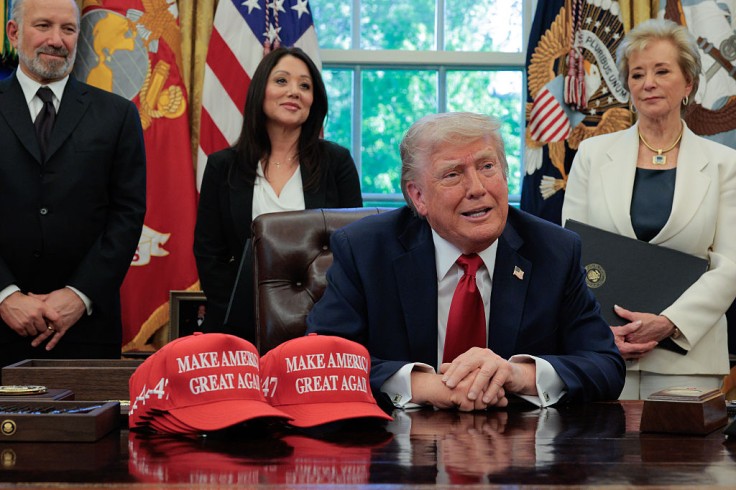What Is the Transparency Plan for Foreign Influence at U.S. Universities Under Trump's Executive Order?
By
The executive order invokes Section 117 of the Higher Education Act of 1965, which requires institutions to report gifts or contracts from foreign sources exceeding $250,000 annually to the Department of Education. The White House stated, "Many institutions of higher education fail to fully comply with Section 117, leaving foreign funding flowing into American universities hidden and unchecked, including from countries of concern like the People's Republic of China". To address this, the order directs the Secretary of Education to issue regulations within 180 days to clarify reporting requirements, enforce timely submissions, and penalize non-compliance with fines or loss of federal funding.
Education Secretary Linda McMahon emphasized the national security implications, stating, "Foreign adversaries like the Chinese Communist Party should not be permitted to buy influence or steal intellectual property from our universities, which serve as the foundation for American innovation and economic prosperity". The order prioritizes identifying funding from "countries of concern," including China, Russia, Iran, North Korea, Syria, and Cuba, and requires universities to report all foreign funding, regardless of amount, from these nations within 30 days.
"Colleges and universities have a legal duty to report foreign gifts and contracts and, in President Trump's first term, the Department of Education held them to it. Unfortunately, in the last four years, the Biden Administration undermined the structures the President built to do this critical work, allowing nations like China and Qatar to funnel billions of dollars to U.S. universities with little to no oversight. This financial infiltration enabled foreign governments to steal taxpayer-funded intellectual property and reshape how our elite campuses teach about Israel and the Middle East. President Trump's Executive Order will safeguard American interests on campus and protect students. The Department of Education will 'follow the money,' put a stop to malign foreign infiltration, secure the research enterprise, and restore American campuses to marketplaces of ideas rather than hosts for foreign propaganda"
The directive builds on prior enforcement efforts. In 2020, the Department of Education found that universities failed to report $6.5 billion in foreign funding, with significant contributions from China, Qatar, and Saudi Arabia. The order aims to close loopholes by mandating public disclosure of all foreign contracts and gifts, including anonymized donations, and requiring universities to maintain searchable databases of these transactions. It also tasks the Department of Education with referring violations to the Department of Justice for investigation, potentially leading to criminal penalties.
The order aligns with broader concerns about foreign influence in academia, particularly from China, which has been linked to Confucius Institutes and research partnerships that critics argue compromise academic freedom and intellectual property. The White House highlighted that "American universities have entered into hundreds of contracts and accepted hundreds of millions of dollars in gifts from countries that seek to harm the United States," citing risks to national security and economic competitiveness.
Universities now face increased administrative burdens to comply with the order's requirements. The Department of Education will establish a public portal within 180 days to display reported foreign funding, enhancing transparency for students, parents, and taxpayers.
The executive order has sparked varied reactions. Some stakeholders, as noted in posts on X, support the measures as necessary to protect national interests, while others, including university administrators, worry about potential overreach and the impact on international collaborations. The order does not explicitly ban foreign partnerships but emphasizes accountability, leaving institutions to navigate compliance while maintaining global academic ties.
As the Department of Education prepares to implement these regulations, universities must adapt to stricter oversight. The order's focus on transparency aims to safeguard academic integrity and national security, but its success will depend on effective enforcement and cooperation from higher education institutions. For now, the directive marks a significant step toward addressing foreign influence in U.S. academia, with implications for funding, research, and campus operations.
© 2025 University Herald, All rights reserved. Do not reproduce without permission.








